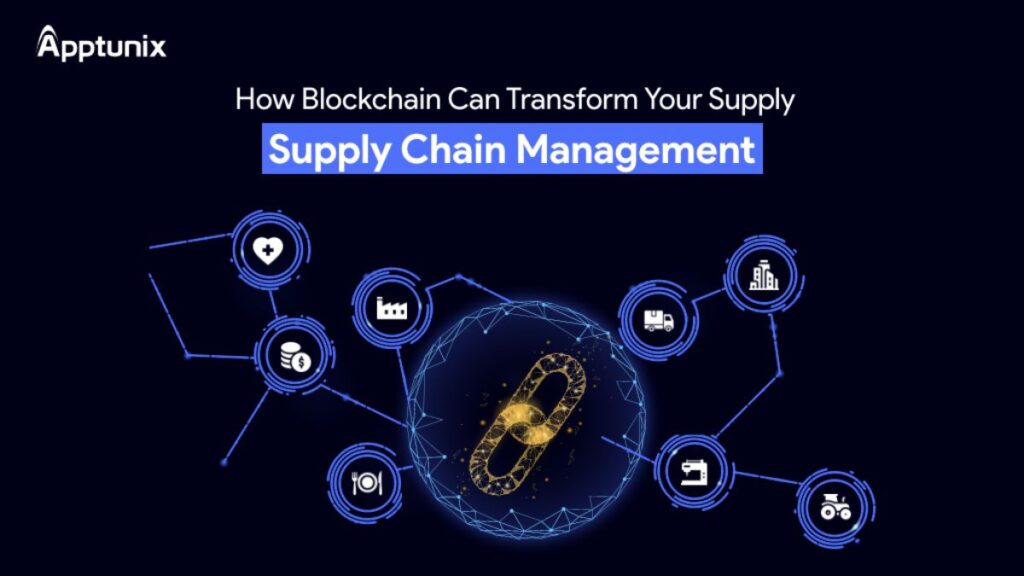Blockchain technology has rapidly become one of the most discussed innovations of the 21st century. Initially associated with cryptocurrencies such as Bitcoin, blockchain’s potential extends far beyond the realm of digital currency. One of the most significant areas where blockchain technology is having a transformative impact is in supply chain management. Traditionally, supply chains have been complex, opaque, and susceptible to various inefficiencies, fraud, and errors. However, blockchain is offering new possibilities for transparency, efficiency, and security, and businesses around the world are beginning to harness its power to revolutionize their supply chain operations.
In this article, we will explore how blockchain technology is changing the landscape of supply chain management by enhancing transparency, improving traceability, reducing fraud, streamlining processes, and promoting collaboration among various stakeholders.
What is Blockchain Technology?
Blockchain is a decentralized, distributed digital ledger that records transactions across multiple computers in such a way that ensures the data cannot be altered retroactively. Each record, or “block,” contains a list of transactions, and once a block is completed, it is appended to a “chain” of previous blocks, forming a permanent and unalterable record of all transactions. This technology is highly secure due to its cryptographic design, making it an ideal solution for industries that require transparent, tamper-proof records.
While blockchain is most famously known for enabling cryptocurrencies like Bitcoin, it has a wide range of other applications. Supply chain management is one area where blockchain’s benefits are being increasingly recognized. By providing a secure and transparent system for recording and verifying transactions, blockchain allows companies to track the movement of goods and materials throughout the entire supply chain with unprecedented accuracy and efficiency.
The Need for Blockchain in Supply Chain Management
Supply chains involve numerous stakeholders, including manufacturers, suppliers, distributors, retailers, and end consumers. Managing this complex web of transactions, communications, and data exchange has always been a challenge. Traditional supply chain systems are often fragmented, relying on centralized databases, spreadsheets, and paperwork, which increases the risk of human error, delays, and miscommunication. Moreover, these systems are vulnerable to fraud and lack the transparency needed to ensure that products are authentic, ethically sourced, or meet quality standards.
In addition, as supply chains grow in complexity, the demand for real-time tracking and monitoring of goods increases. Without a centralized system to share data among stakeholders, it becomes increasingly difficult to track products as they move through various stages of the supply chain. This is where blockchain technology can provide a major advantage.
Blockchain offers a decentralized and secure platform for recording all transactions, ensuring that every stakeholder has access to the same information in real time. By using blockchain to document each step of the supply chain process, from raw material sourcing to product delivery, companies can improve accuracy, reduce inefficiencies, and increase accountability.
Enhancing Transparency and Traceability
One of the most significant benefits of blockchain in supply chain management is the enhancement of transparency and traceability. Blockchain allows all participants in the supply chain to access the same immutable records of transactions, giving them greater insight into the movement of goods. Whether it’s tracking the origin of raw materials, monitoring the progress of a shipment, or ensuring that products meet regulatory standards, blockchain makes it possible to view the entire history of a product, from production to delivery.
For instance, if a product is recalled due to a defect or safety concern, blockchain enables companies to trace its journey through the supply chain in real time, identifying precisely where the issue occurred. This level of traceability not only improves the speed and accuracy of issue resolution but also builds consumer trust by ensuring that the company is transparent and responsive in addressing problems.
In industries such as food, pharmaceuticals, and luxury goods, transparency and traceability are especially important. Consumers are increasingly concerned about the sourcing and ethical practices behind the products they purchase. With blockchain, companies can provide detailed and verifiable information about the origin of materials, the manufacturing process, and the working conditions under which a product was made. This transparency helps companies meet consumer demand for more ethical and sustainable practices while also protecting their brand reputation.
Reducing Fraud and Counterfeiting
Supply chains are often vulnerable to fraud, counterfeiting, and other types of malicious activity. The complexity and global nature of modern supply chains make it difficult for companies to ensure the authenticity of products and prevent counterfeit goods from entering the market. Blockchain technology offers a solution to this problem by providing a secure and transparent record of every transaction.
By using blockchain, companies can create a digital certificate of authenticity for each product that is tracked along its journey through the supply chain. For example, in the case of luxury goods such as designer handbags, consumers can use blockchain to verify the authenticity of the product they are purchasing. Every step of the product’s journey – from production to shipping to retail – is recorded on the blockchain, ensuring that the product is genuine and not a counterfeit.
In addition, blockchain’s decentralized nature makes it difficult for fraudsters to manipulate data or create false records. Since all transactions are recorded in a distributed ledger that is shared among multiple participants, it is nearly impossible to alter or delete past records without being detected. This provides an extra layer of security and reduces the risk of fraudulent activities in the supply chain.
Streamlining Processes and Reducing Costs
Blockchain technology has the potential to streamline supply chain processes and reduce operational costs. Traditional supply chains often involve a complex series of intermediaries, each of which adds their own fees, delays, and potential for errors. Blockchain can eliminate many of these intermediaries by creating a direct, peer-to-peer network for data exchange, which allows for faster and more efficient transactions.
Smart contracts, which are self-executing contracts with the terms of the agreement directly written into code, can further automate supply chain processes. For example, a smart contract can automatically release payment to a supplier once a shipment has been delivered and verified on the blockchain. This eliminates the need for manual processing, reducing administrative costs and speeding up the overall process.
Blockchain can also reduce the costs associated with paperwork and document management. In traditional supply chains, companies often rely on paper-based invoices, shipping documents, and customs forms, which are time-consuming and prone to errors. By digitizing these documents and storing them on the blockchain, companies can streamline operations, reduce administrative overhead, and avoid costly delays.
Enhancing Collaboration and Trust Among Stakeholders
Collaboration is essential in supply chain management, but the lack of transparency and inefficiencies in traditional systems often hinder effective cooperation among stakeholders. Blockchain’s decentralized and transparent nature fosters greater trust among parties involved in the supply chain. Since blockchain provides an immutable record of every transaction, all stakeholders can trust that the data being shared is accurate and up-to-date.
This trust can lead to stronger partnerships and more efficient collaboration between suppliers, manufacturers, distributors, and retailers. For example, blockchain can facilitate more transparent communication regarding inventory levels, delivery schedules, and production timelines. By providing real-time access to this information, blockchain helps companies make better-informed decisions, reducing the likelihood of stockouts, overstocking, and delays.
Furthermore, blockchain enables new business models that rely on greater collaboration between different entities. For example, blockchain can be used in a collaborative supply chain where multiple companies share resources and information to reduce costs, improve efficiencies, and create value for all parties. This new form of collaboration has the potential to transform how companies work together across industries.
Conclusion
Blockchain technology is transforming supply chain management in profound ways. By enhancing transparency, improving traceability, reducing fraud, streamlining processes, and promoting collaboration, blockchain is enabling companies to create more efficient, secure, and accountable supply chains. As businesses increasingly recognize the value of blockchain, its applications are likely to expand, leading to even more innovative solutions in the future.
While there are still challenges to be addressed – including regulatory concerns, technical barriers, and the need for industry-wide adoption – the potential benefits of blockchain in supply chain management are undeniable. As the technology continues to evolve, it is clear that blockchain will play a key role in shaping the future of supply chains, making them more transparent, efficient, and resilient than ever before.



